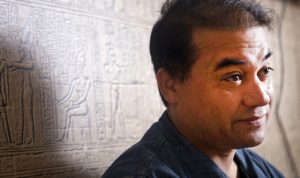China: Immediately and Unconditionally Release Political Prisoners

Press Release – For immediate release
27 June 2017
Contact: World Uyghur Congress www.uyghurcongress.org
0049 (0) 89 5432 1999 or [email protected]

Following Liu Xiaobo’s release from prison on medical parole on account of his recent cancer diagnosis, the World Uyghur Congress calls on the Chinese government to take the immediate and necessary steps to release all political prisoners without exception. The Chinese dissident and Nobel Peace Prize winner, now 61, played an instrumental part in the Tiananmen Square protests in 1989 and continues to stand as a symbol both of a wide ranging struggle for human rights as well as the repressive power of the state.
China’s treatment of dissidents and critics has been well-documented for decades. Less so has been the research and coverage of Uyghur dissidents who have seemingly defied the Chinese government. Uyghur religious and cultural leaders, artists and other prominent voices have all faced harsh censure from Chinese authorities—many having their freedom cut short for supporting the most basic human rights.
No other Uyghur figure has figured so prominently in recent years than academic and former professor at Minzu University in Beijing, Ilham Tohti, who won the Martin Ennals Award for Human Rights Defenders back in 2016. Tohti was the founder of the website Uyghur Online—a platform launched to promote conciliation between Uyghurs and Chinese.
For his work, Tohti was initially arrested in January 2014 and was subsequently convicted of “inciting separatism” and sentenced to life in prison in a trial that was described as “a farce” by the PEN American Center. Amnesty International called the sentence “deplorable” with “no basis in reality” with Human Rights Watch stating that his trial amounted to “an injustice of the highest order.” Tohti’s appeal was subsequently denied in November 2014.
Despite the charges of separatism, Tohti has been known as a particularly mild critic of the Chinese government, openly speaking of the need for genuine dialogue and an open platform supportive of discourse on the problems facing both Chinese and Uyghur citizens as well as a means of addressing stereotypes and misconceptions.
As with other critical voices in China, although the trial was conducted with partial transparency, the entire case against the academic was marred by irregularities. Tohti was denial of access to legal representation for months after his arrest and his lawyers, Li Fangping and Liu Xiaoyuan, also cited numerous procedural errors following the trial including the prosecutor’s failure to provide complete evidence for the defense team to review and the refusal of the Court to call any of the witnesses Tohti’s lawyers had requested to testify at his trial.
Treatment of family members of dissidents has also been harsh for both Tohti and Liu Xiaobo. Tohti’s access to family members during his initial time in detention was severely limited as he was only able to meet family members 18 months after his arrest. Chinese authorities even went so far as placing Liu’s wife under house arrest since her husband won the Nobel Peace Prize in 2010, though she has never been charged. Chinese authorities also reacted to Tohti’s Martin Ennals award with hostility, calling it a “so-called human rights award”.
Although these cases stand as two prominent examples, well known by the international community, countless more cases point to a consistent and systematic effort to undermine any critics of the government, however mild.
Abdukerim Abduweli, a renowned Uyghur Islamic scholar and Imam was initially arrested in 1990 on charges of “carrying out counter-revolutionary propaganda and agitation” related to his religious teachings. In his case, he completed his sentence in 2002, but was subsequently sentenced four additional times in 2002, 2005, 2010 and 2011. Reports have indicated that he had undertaken a long hunger strike in 2012 and like Tohti and Liu, has been denied access to family members.
Far less known cases like these will continue to fly under the radar as Tohti and Liu stand as examples of how one may be punished if they cross the line. In doing so, China continues to undermine its legitimacy as a major player in world affairs. Real leaders are open to dialogue and criticism as a means of moving forward, not backward.
The Chinese government now has the choice to either heed the advice of those with the best interests of both the country and their own people in mind, or to continue down a regressive the regressive path that sees such conversations as an unacceptable irritant.

